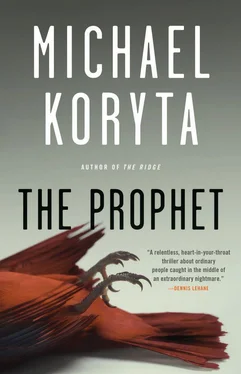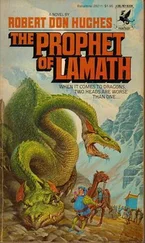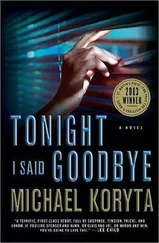“I see,” Adam said, and then they were all quiet, and Adam waved a hand at the window. “Is it okay if I bring my gun in now?”
“That’s fine,” Kent said. “You should probably have it.”
At one thirty that morning, as he sat on his brother’s couch in the dark, Adam’s phone alarm went off, notifying him that his GPS tracker was in motion.
He logged in to the program and watched the dot move away from Rodney Bova’s house and could not decide what to do. He wanted to go after him, because this sort of movement, so late at night, was interesting. To pursue him, though, would require leaving Kent’s house unguarded.
“Damn it,” he said aloud, and set the phone down, torn. This could be it. This could be the meeting with Sipes, his first chance and perhaps his only chance.
But upstairs, his only brother slept with his family. Adam’s niece and nephew were in their rooms. If Bova was not meeting Sipes, if Sipes was on his way to their home right now…
No, he could not leave. He could investigate the location tomorrow, but he could not leave his post tonight.
The dot was sliding across town and toward the steelyards. A rundown area, one Adam knew well, home to more than a few of his clients. It stopped at 57 Erie Avenue.
“That you, Clayton?” he whispered. “Is that where you’re hiding?”
Ten minutes passed. Fifteen. Twenty. Adam continued to refresh the screen, keeping the display lit. It was hard not to move, he wanted so badly to drive out there and see what was happening. A glance up his brother’s staircase, to where his family slept, calmed him, though. He could not leave, and he would not.
At ten past two, after a half-hour stay, Rodney Bova left 57 Erie Avenue and went into motion again, this time heading southeast. Back home.
Adam set the phone down, kept his hand on his gun, and waited for dawn.
39
BY THE TIME ADAM WAS BORN, there were only two steel mills still going in Chambers, and now there were none. Many of the structures remained, though, including the old Robard Company plant, which had once employed Hank Austin. Its blast furnace carved the skyline with ancient smokestacks, and at its base, rows of abandoned rails, rusted and overgrown and untouched by a train’s wheels in years, ran like the lingering scars of an old addiction. To the east and west of the plant, the streets made a slow shift from industrial to residential, brick and iron giving way to narrow wood-framed houses. The sidewalk had been jackhammered out in a three-block stretch but not yet replaced, lined by orange plastic fencing, footpaths worn into the weeds beside it. A low-rent district in a low-rent town.
Number 57 Erie Avenue had boards over the ground-floor windows, but the glass upstairs was exposed and unmarred by blinds or curtains. At first glance most people would say that the house had not been occupied in many years. There was plywood over the broken windows and weeds protruded through torn porch boards, no car parked outside, no lights on inside. But Adam had found plenty of people staying in less hospitable-looking places, and Rodney Bova had visited this address in the middle of the night and stayed for thirty minutes.
He parked across the street, took a series of photographs of the property, and then sat with the engine off as the chill seeped into the car, staring at the house and trying to determine his next move. Did he go in, or did he wait to see if someone came out?
Sometimes you could enter a place easily enough and leave without a trace, as he had at Bova’s house, but Sipes was on guard. This was a hiding spot for him, a safe house, and he would likely be attuned to any signs of danger checking for intruders. The last thing Adam wanted was to put him on the run again if in fact he was staying here.
He decided to give it time. If Sipes was in there, he’d have to move at some point, and if he was already gone, with luck he might return.
This decision meant a grudging pact to settle in for a lengthy wait, but it didn’t take long. Just twenty minutes after Adam arrived, the side door of the house opened and a man stepped out and walked down the driveway to the sidewalk, then up the road to a white Buick Rendezvous. Adam’s adrenaline spiked at the sight of him, then fell. It was not Clayton Sipes. Not even close. Too heavy a build, a head of thick dark hair instead of a shaved scalp, no tattoos. Adam took five photographs of him as he got into his car, then decided to follow. It would be good to know who Rodney Bova had visited in the night. It had not been Sipes, but maybe it was someone connected to him. You had to chase the leads you found.
Still, he couldn’t help feeling defeated. It had seemed like a promising chance, and now that it hadn’t panned out, he had to consider the possibility that it might never pan out, that Rodney Bova could be a dead end. He started the engine and pulled down the street, wondering how long he should pursue this. The glance he gave the house at 57 Erie was a distracted, indifferent flick of the eyes.
But it was enough to see the man in the window.
Somehow he avoided hitting the brakes. It was his first instinct, and it was strong, but he overrode it and managed to keep on driving.
The man had been watching the street from the upstairs window, the one that had neither boards nor curtains, and the view of him was clear. He had a shaved head and he stood shirtless in front of the glass and colored tattoos ran the length of his left arm.
Adam drove to the end of the block, reached the stop sign, and stared in the rearview mirror. He could still see the house but not the figure in the window, not from this distance. He turned right, heart hammering, and lapped the block, sliding into a new parking spot on the other side of the street. Unholstered his gun and set it in his lap.
He’d found him. Clayton Sipes was inside that house.
Watching and waiting no longer felt like the best option. Not at all. Not with the son of a bitch so close, not now that Adam had actually laid eyes on him. The patience he could force himself to have on the hunt was evaporating, because he’d seen the prey, he’d seen the target. The hunt was over. All that remained was finishing it.
I will find him and I will kill him.
That was the promise. He had not wavered when he spoke the words. He could not waver when the chance to deliver on the promise came. Should not, at least. But it was on him fast now, the hunt had reached a sudden end, and after all the days of hungry anticipation, he found himself unprepared for it, uncertain.
Kill him? He was really going to kill him?
Yes, damn it. Do what you promised you would do.
He removed the holster with his Glock and put on a pair of thin black cotton gloves. Then he retrieved a new weapon, this one from under the seat, another gun he’d stolen from a skip, similar to the piece he’d left in Rodney Bova’s truck. It was easy to acquire guns from skips if he caught them armed; most of them knew damn well the possession charge might add years to their jail stay. Often the guns were cheap, poorly maintained crap, but this was a Ruger .45-caliber in mint condition. He preferred the Glock, but the Glock was registered to him. The Ruger was not.
He ran his gloved thumb over the stock of the gun. He was so familiar with them and yet not truly familiar at all. He’d shot them, cleaned them, oiled them, experimented with ammunition and shooting stances and grips and speeds. He’d done everything one could possibly do with a gun except the one thing for which it was designed.
He ejected the magazine and checked its load even though he knew it was full. Slipped it back in, racked the slide, and heard the click of a round chambering. One trigger pull away.
Читать дальше












